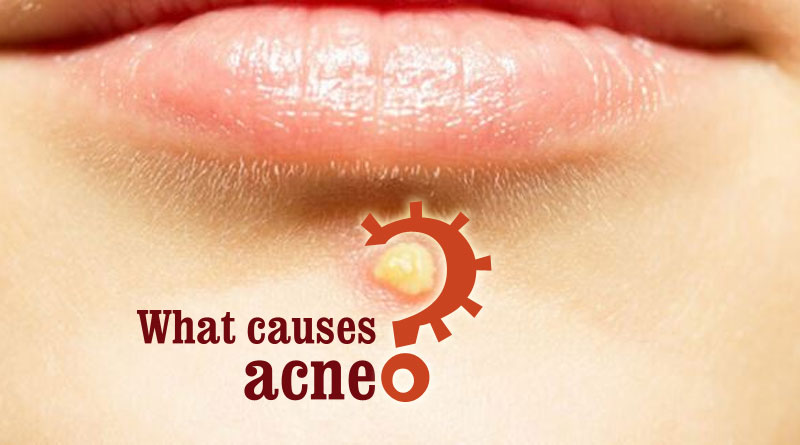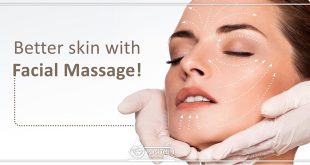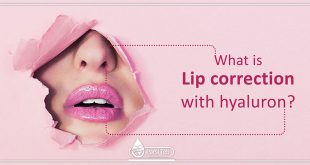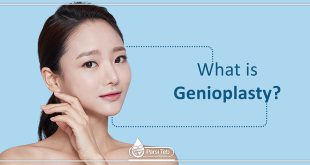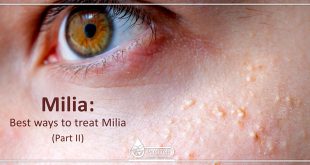Acne: causes , symptoms and treatment
Your skin has tiny holes called pores, which can become blocked by oil, bacteria, dead skin cells, and dirt. When this occurs, you may develop a pimple or “zit.” If your skin is repeatedly affected by this condition, you may have acne. According to the American Academy of Dermatology, acne is the most common skin condition in the United States. Although acne isn’t a life-threatening condition, it can be painful, particularly when it’s severe. It can also cause emotional distress. Acne that appears on your face can impact your self-esteem and, over time, may cause permanent physical scarring. There are many effective treatments for acne that reduce both the number of pimples you get and your chance of scarring.
What Are the Symptoms of Acne?
Acne can be found almost anywhere on your body. It most commonly develops on your face, back, neck, chest, and shoulders. If you have acne, you will typically notice pimples that are white or black in appearance. Both blackhead acnes and whitehead acnes are known as comedones. Blackheads open at the surface of your skin, giving them a black appearance due to the effect of oxygen in the air. Whiteheads are closed just under the surface of your skin, giving them a white appearance. While whiteheads and blackheads are the most common lesions seen in acne, other types can also occur. Inflammatory lesions are more likely to cause scarring of your skin:
- Papules are small red, raised bumps caused by inflamed or infected hair follicles.
- Pustules are small red pimples that have pus at their tips.
- Nodules are solid, often painful lumps beneath the surface of your skin.
- Cysts are large lumps found beneath your skin that contain pus and are usually painful.
What Causes Acne?
It occurs when the pores on your skin become blocked with oil, dead skin, or bacteria. Each pore on your skin is the opening to a follicle. The follicle is made up of a hair and a sebaceous (oil) gland. The oil gland releases sebum (oil), which travels up the hair, out of the pore, and onto your skin. The sebum keeps your skin lubricated and soft.
Acne can be caused by one or more problems in this lubrication process. It can occur when:
- too much oil is produced by your follicles
- dead skin cells accumulate in your pores
- bacteria builds up in your pores
All of these problems contribute to the development of pimples. When bacteria grow, a zit appear in a clogged pore and the oil is unable to escape.
7 possible causes
- Rosacea
- Polycystic Ovarian Syndrome
- Adrenal Cortical Carcinoma
- Hyperhidrosis Disorder (Excessive Sweating)
- Cushing Syndrome
- PMS (Premenstrual Syndrome)
- Excessive or Unwanted Hair in Women
What Are the Risk Factors for Developing Acne?
Myths about what contributes to acne are quite common. Many people believe that foods such as chocolate or French fries will contribute to acne. While there’s no scientific support for these claims, there are certain risk factors for developing acne. These include:
- hormonal changes caused by puberty or pregnancy
- certain medications, such as certain birth control pills or corticosteroids
- a diet high in refined sugars or carbohydrates, such as bread and chips
- having parents who had acne
Young people are most at risk for developing acne during puberty. During this time, your body undergoes drastic hormonal changes. These changes can trigger oil production, leading to an increased risk of acne. Hormonal acne related to puberty usually subsides or at least improves when you reach adulthood.
How Is Acne Diagnosed?
If you have symptoms of acne, your doctor can confirm your diagnosis by examining your skin. Your doctor will identify the types of lesions and their severity to determine the best treatment.
How Is Acne Treated?
At-Home Care
You can use a number of self-care activities at home to prevent pimples and to clear up your acne. Home remedies for acne include:
- cleaning your skin daily with a mild soap to remove excess oil and dirt
- shampooing your hair regularly and keeping it out of your face
- using makeup that’s water-based or labeled as “noncomedogenic” (not pore-clogging)
- not squeezing or picking pimples, which spreads bacteria and excess oil
- not wearing hats or tight headbands
- not touching your face
Medication
If self-care activities don’t help with your acne, a number of over-the-counter acne medications are available. Most of these medications contain ingredients that can help kill bacteria, open pores, or reduce oil on your skin:
- Benzoyl peroxide is present in many acne creams and gels. It’s used for drying out existing pimples and preventing new ones. Benzoyl peroxide also kills acne-causing bacteria.
- Sulfur is a natural ingredient with a distinctive smell that’s found in some lotions, cleansers, and masks.
- Resorcinol is a less common ingredient that’s used to remove dead skin cells.
- Salicylic acid is often contained in soaps and acne washes. It helps prevent pores from getting plugged.
Sometimes, you may continue to experience symptoms. If this happens, you may want to seek medical advice. Your doctor can prescribe medications that may help reduce your symptoms and prevent scarring:
- Oral or topical antibiotics kill the bacteria that cause pimples and reduce inflammation. Typically, antibiotics are only used for a short amount of time so that your body doesn’t build up a resistance and leave you prone to infections.
- Prescription topical creams such as retinoic acid or prescription-strength benzoyl peroxide are often stronger formulas of over-the-counter treatments. These work to reduce oil production and open pores.
- Women with hormonal acne may be treated with birth control pills or spironolactone. These medications regulate hormones that can cause acne.
- Isotretinoin (Accutane) is a vitamin-A-based medication that’s used to treat certain cases of severe nodular acne. It can cause serious side effects, and it’s only used when other treatments have failed.
Additional Treatments
Your doctor may recommend additional procedures to treat severe acne and prevent scarring. These work by removing damaged skin, reducing oil production, or opening pores:
- Photodynamic therapy uses a medication and a special light or laser to reduce oil production and reduce bacteria. Other lasers may be used alone to help improve acne or scarring.
- Dermabrasion removes the top layers of your skin with a rotating brush. Microdermabrasion is a milder treatment that helps to open pores and remove dead skin cells.
- A chemical peel essentially removes the top layers of your skin. That skin peels off to reveal less damaged skin underneath. Chemical peels also help open pores and can improve mild acne scarring.
Your doctor may suggest using cortisone injections if your acne consists of large cysts. Cortisone is a steroid naturally produced by your body. It can reduce inflammation and speed healing. Cortisone is usually used along with other acne treatments.
What Is the Outlook for Someone with Acne?
Treatment for acne is often successful. Most people can expect their acne to start to clear up within six to eight weeks. However, flare-ups of the condition are common and may require additional or long-term treatment. Isotretinoin is the treatment most likely to provide permanent or long-term results.
Scarring that occurs as a result of acne can cause emotional distress. Prompt treatment can help prevent scarring. Also, your dermatologist has treatment options specifically designed to treat scarring.
How Can Acne Be Prevented?
It’s difficult to prevent acne. But you can take some steps at home to help prevent acne after treatment. These steps include:
- washing your face twice a day with an oil-free cleanser
- using an over-the-counter acne cream to remove excess oil
- avoiding makeup that contains oil
- removing makeup and cleaning your skin thoroughly before bed
- showering after exercising
- avoiding tight-fitting clothing
- eating a healthy diet with minimal refined sugars
- reducing stress
Acne and traditional medicine:
Waste materials which exist in the liver and blood are the most important reason for white head acnes. They are carried to the skin by the liver, so no cream can cure these acnes permanently. The liver in the youth is more powerful than elderlies, and as a result it excretes these waste materials easily. When the skin ways are open, these waste materials changes into the white head acnes, and when they get older, they will change into the black head acnes.
In the same condition some people have difficulties with acnes and some of them do not. It depends on the situation of the skin pores. If the skin pores are open, waste materials will appear as a acne and if not, they will cause other problems such as subcutaneous fat, fatty liver, artery occlusion and hyperlipidemia.
Some people mistakenly believe that the warm nature foods are the main reason of acnes. These foods include all foods which increase the level of heat and energy of the body. But it is not true and they only cause acnes. In fact the waste materials in the liver and blood are the main factors for acnes. A useful medication for treatment of acnes must be able to cleanse the liver and blood completely.
Herbal treatment by Parsiteb co:
In order to have a glowing and shiny skin, it is necessary to use a helpful liver cleanser to cleanse and filter the liver and bloodstream. After cleansing as a result no waste material exists to cause acnes, so you will have a shiny skin. It is suggested to use “Paprika liver cleanser” or ” shliver”. That is an effective liver cleanser and it has been successful to treat 95% of cases who had liver problems or liver weakness. It is completely herbal and has no side effect.
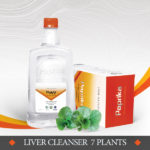
References:
healthline
liverdoctor
 Parsi Teb Physical and Mental Health Journal
Parsi Teb Physical and Mental Health Journal 